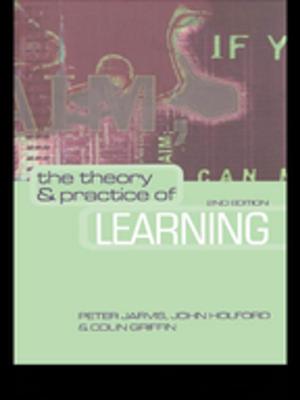The British Book Trade and Spanish American Independence
Education and Knowledge Transmission in Transcontinental Perspective
Fiction & Literature, Literary Theory & Criticism| Author: | Eugenia Roldán Vera | ISBN: | 9781351893657 |
| Publisher: | Taylor and Francis | Publication: | March 2, 2017 |
| Imprint: | Routledge | Language: | English |
| Author: | Eugenia Roldán Vera |
| ISBN: | 9781351893657 |
| Publisher: | Taylor and Francis |
| Publication: | March 2, 2017 |
| Imprint: | Routledge |
| Language: | English |
The British Book Trade and Spanish American Independence is a pioneering study of the export of books from Britain to early-independent Spanish America, which considers all phases of production, distribution, reading, and re-writing of British books in the region, and explores the role that these works played in the formation of national identities in the new countries. Analysing in particular the publishing house of Rudolph Ackermann, which dominated the export of British books in Spanish to the former colonies in the 1820s, it discusses the ways in which the printed form of these publications affected the knowledge conveyed by them. After a survey of the peculiar characteristics of print culture in early-independent Spanish America and the trends in the import of European books in the region, the author examines the operation of Ackermann's publishing enterprise. She shows how the collaborative nature of this enterprise, involving a number of Spanish American diplomats as sponsors and Spanish exiles as writers and translators, shaped the characteristics of its publications, and how the notion of 'useful knowledge' conveyed by them was deployed in the service of both commercial and educational concerns. The hitherto unexplored mechanisms of book import, distribution, wholesale and retailing in Spanish America in the 1820s are also analysed as is the way in which the significance of the knowledge transmitted by those books shifted in the course of their production and distribution. The author examines how the question-and-answer form of Ackermann's textbooks constrained both publishers and writers and oriented their readers' relation with the texts. She then looks at the various ways in which foreign knowledge was appropriated in the construction of individual, social, national, and continental identities; this is done through the study of a number of individual reading experiences and through the analysis of the editions and adaptations of Ackermann's textbooks during the nineteenth century.
The British Book Trade and Spanish American Independence is a pioneering study of the export of books from Britain to early-independent Spanish America, which considers all phases of production, distribution, reading, and re-writing of British books in the region, and explores the role that these works played in the formation of national identities in the new countries. Analysing in particular the publishing house of Rudolph Ackermann, which dominated the export of British books in Spanish to the former colonies in the 1820s, it discusses the ways in which the printed form of these publications affected the knowledge conveyed by them. After a survey of the peculiar characteristics of print culture in early-independent Spanish America and the trends in the import of European books in the region, the author examines the operation of Ackermann's publishing enterprise. She shows how the collaborative nature of this enterprise, involving a number of Spanish American diplomats as sponsors and Spanish exiles as writers and translators, shaped the characteristics of its publications, and how the notion of 'useful knowledge' conveyed by them was deployed in the service of both commercial and educational concerns. The hitherto unexplored mechanisms of book import, distribution, wholesale and retailing in Spanish America in the 1820s are also analysed as is the way in which the significance of the knowledge transmitted by those books shifted in the course of their production and distribution. The author examines how the question-and-answer form of Ackermann's textbooks constrained both publishers and writers and oriented their readers' relation with the texts. She then looks at the various ways in which foreign knowledge was appropriated in the construction of individual, social, national, and continental identities; this is done through the study of a number of individual reading experiences and through the analysis of the editions and adaptations of Ackermann's textbooks during the nineteenth century.















